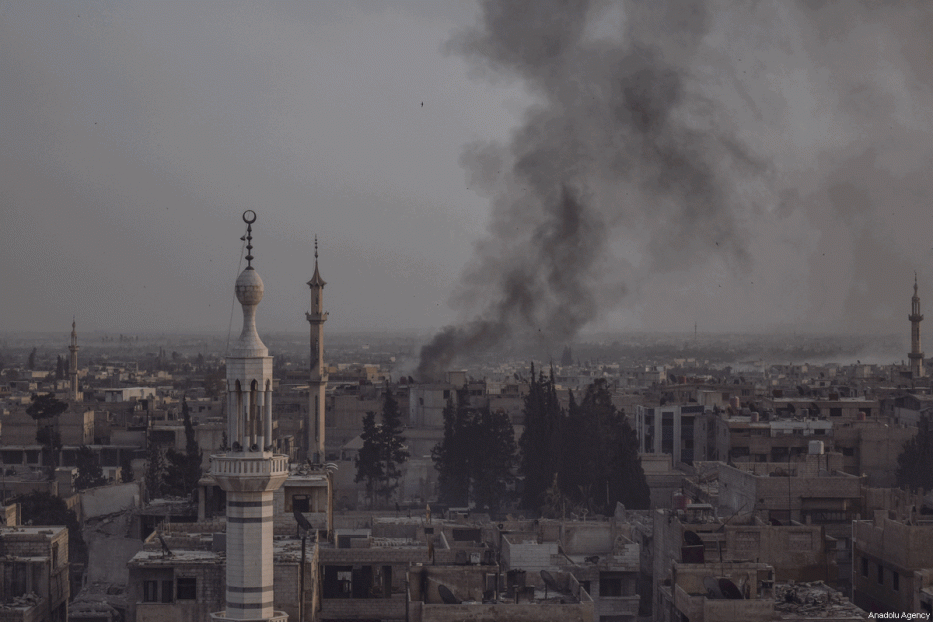For months there has been speculation that the Iranian-Russian partnership in Syria is under strain and possibly even on the threshold of a serious split. There is even speculation that the Putin-Trump summit in Helsinki, Finland could result in a shift in Russia’s position on Iran.
Many factors are cited to support the idea of a putative split in the Russian and Iranian positions, ranging from the tense situation in Syria’s southwest to the deployment of Russian forces on the Syrian-Lebanese border.
Above all the intensifying Iranian-Israeli conflict in Syria is cited as a major pressure point on Moscow’s strategic calculus. To illustrate Moscow’s dilemma, the advisor to the Iranian leader on international affairs, Ali Akbar Velayati, arrived in Moscow last week for talks with Vladimir Putin at the same time that Israeli Prime Minister Benjamin Netanyahu was in town.
Whilst there is indeed tension between Russia and Iran in Syria, talk of major disagreements, let alone a split, is premature. The Iranian-Russian cooperation may not be inherently stable, but it is sufficiently strong to withstand outside pressure, at least for the foreseeable future.
Moreover, a range of shared interests and perceived threats, not least uncertainty over Washington’s plans in Syria, keep Iran and Russia united.
An alliance of convenience
As this author has consistently argued Iran and Russia are not natural allies. To that end, even their partnership in Syria is beset by a wide range of tensions and may in the long run come apart. Both countries are committed to the preservation of the status quo in Syria – i.e. the political and ideological hegemony of the Baath party – an objective that has been largely met.
To that end, both Iran and Russia instinctively intervened in the Syrian conflict in order to ensure the survival of the current Syrian government. Reports that Iran somehow “persuaded” Russia to intervene in earnest in late September 2015 are exaggerated to say the least.
Russia entered the war with the knowledge that in the event of the collapse of the Syrian government, the successor regime would tilt toward the West, possibly even closing down Russia’s naval base in Tartus, which ranks as the Russian navy’s sole overseas base.
Iran on the other hand intervened at the outset of the conflict and has been fighting a much deeper battle, mindful of the fact that “regime change” in Damascus will deal a grievous blow to the Islamic Republic’s regional strategic depth, with potentially existential consequences for Iran’s ideological compatriots in neighbouring Lebanon.

To put it simply, Russia is essentially driven by a set of pragmatic considerations centering solely on its national interests in Syria and the wider region. To that end, Russia is concerned with holding onto Tartus indefinitely (at least until 2092), in addition to developing new bases in Syria, notably the Hmeimim air base.
Iran’s position meanwhile is much more complex, as characterised by the inextricable web of national interest and ideological factors which determine the Islamic Republic’s policy on Syria. This is underpinned by Tehran’s unflinching loyalty to Damascus, which counts as Iran’s sole formal alliance in the international system.
Maximalist Israeli demands centering on the total withdrawal of Iranian forces from Syria not only diverge from Russian interests but more importantly these demands are totally unrealistic.
This foundational difference will inevitably create divergent outlooks and disagreements on policy, as for example different outlooks on the role of the Syrian opposition. Analysts are correct to focus on the long-term instability of the Russian-Iranian partnership in Syria, but the issue is the time frame, i.e. just how long term we are talking about.
By all credible estimates, the Iranian-Russian partnership in Syria will endure for a long time – indeed long after the Syrian War has concluded – as its principal strategic driving force is fear of US intentions in Syria and the wider region.
Whilst the American military presence in Syria is relatively small (limited to around 2,000 troops based in eastern Syria), nevertheless this force – in tandem with broader US military assets in the region – can still defeat combined Iranian and Russian forces in Syria.
The Israeli dimension
In order to develop and maintain influence across the Middle East, Russia needs good relations with all major regional players, which include Iran, Israel and Saudi Arabia. In keeping with Moscow’s deft diplomacy, Russia has sought to balance Iranian and Israeli interests in Syria.
To that end, Russia has largely stood aside as Israel carried out over 100 air strikes on Hezbollah, Syrian and Iranian targets in Syria in the past five years. Indeed, Moscow appears to be resolutely neutral in the intensifying Iranian-Israeli conflict in Syria, as demonstrated by the deadly foes’ first direct clash back in May.
In future, Russia will likely try to mitigate this conflict – in order to preserve its own vital interests – without appearing to take sides. To that end, Moscow may accommodate Israeli demands that Iran and its allies are kept well away from the occupied Golan Heights.
But maximalist Israeli demands centering on the total withdrawal of Iranian forces from Syria not only diverge from Russian interests but more importantly these demands are totally unrealistic. As this excellent analysis demonstrates the nature of the Iranian deployment in Syria is “integrationist”, to the extent that Iranian and Iranian-aligned forces have become an indivisible part of the Syrian military and security infrastructure.
This is yet another reason as to why Russia and Iran need to work together in Syria to safeguard their vital national security interests and to win the “peace”, which may last much longer than the war.






